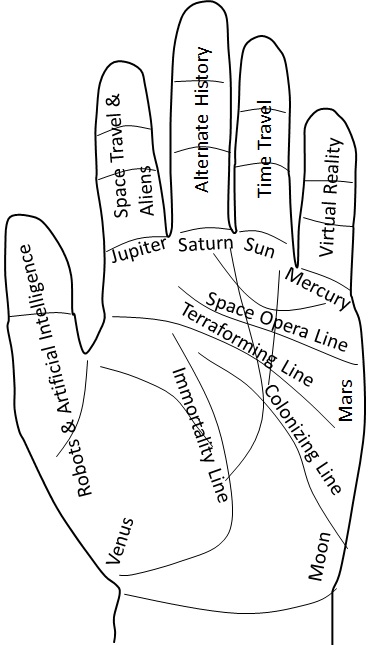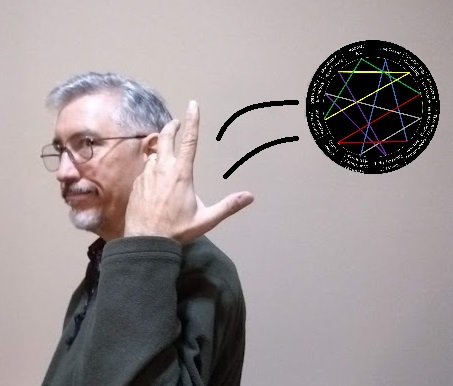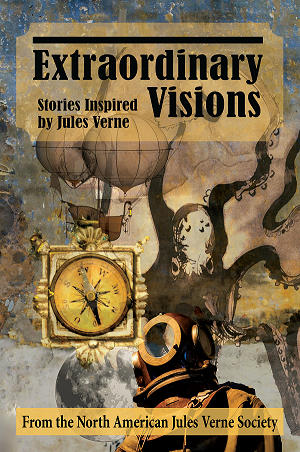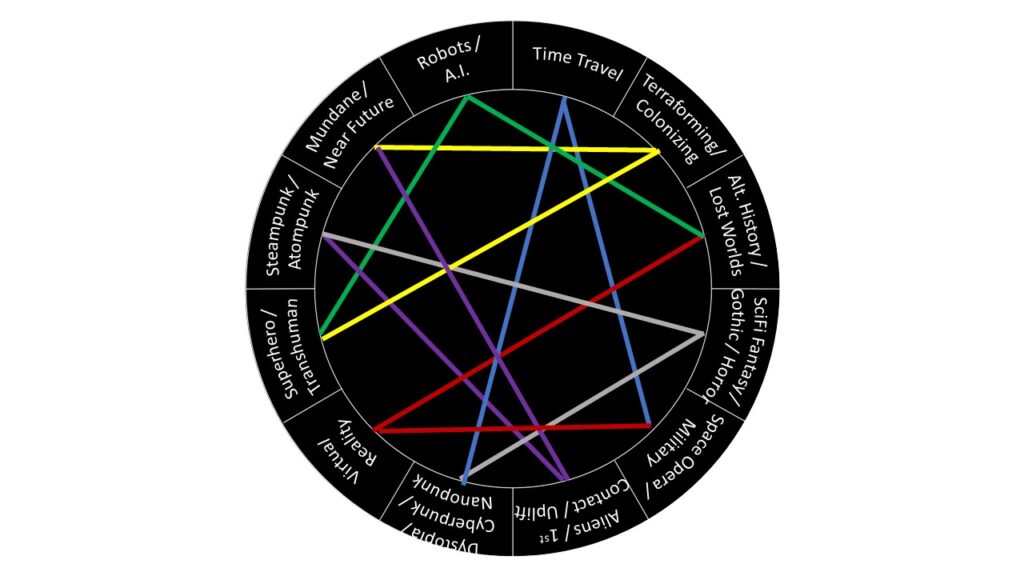Want to know what science fiction will get published in 2026? You’ve come to the right place, at the right time.

I’ve made scifi publication predictions before, with little success. However, the methods I used—crystal balls, tea leaves, tarot cards, astrology, palmistry, ChatGPT, and a Ouija Board—didn’t produce accurate prophesies.
This year, I sought the most reliable and proven prognostication technique of all—the method of Nostradamus himself.
Imitating that 16th Century French seer, I secreted myself in the attic, meditated, prayed, consulted astrological charts, and made sketches and notes of the visions that came to me. To my surprise, a set of four-line poems—quatrains—emerged from this process. Contrasting with those of Nostradamus, my quatrains came to me in English.
I’ll provide the quatrains, and my interpretation of their cryptic phrasing, below.
Translated SF
In ’26 the science fiction bands
Will stretch to languages of distant lungs
The tales from writers writ in other lands
Will translate fiction from their foreign tongues
I believe this means we’ll see a surge of translated science fiction in 2026.
Space Opera
The coming year will see space opera bloom
Vast empires ’cross the galaxies galore
Equipped with FTL, the starships zoom
Through epic dramas, aliens, and war
This suggests a revival of space opera in 2026. FTL = faster than light.
Characters Beyond Gender
Some authors will play more with gender norms
Not always stuck with females and with males
Their characters will switch or take new forms
Within new trans and gender-fluid tales
I interpret this to mean we should expect to leave female and male characters behind, in favor of new genders, changeable genders, non-genders, and who knows what else.
Serial Fiction
We’ll see rebirth of serials again
With shorter bites to match attention spans
Subscriptions, author newsletters, and then
Some dedicated apps with bundled plans
If I’m construing the meaning of this in the right way, we should find authors writing short chunks with cliffhanger endings to entice readers to subscribe to read the complete stories in serial form.
Hybrid Genres
Next, hybrid genres will remain a trend
Scifi can mix with others all the time
To form a very complement’ry blend
With horror, and romance, and even crime
This quatrain hints at the continuing trend of mixing scifi with other genres.
Year of the Horse
In Chinese myth, this next year marks the horse
And scifi books will emulate the steed
With high adventure, optimistic force
Heroic, active, with pulse-pounding speed
It’s hard to extract much meaning from this. Perhaps it’s suggesting scifi in 2026 will take on equine attributes of power, independence, perseverance, and confidence.
Conclusion
Look for the results of these predictions next December. Being curious, I couldn’t resist applying Nostradamus’ methods to discover what the new year will mean for me. Here’s what resulted:
This lies beyond the sight of any seer
Will he soon join “best-selling author” tribe?
He’ll work hard but the outcome is unclear
It’s unknown what awaits—
Poseidon’s Scribe










